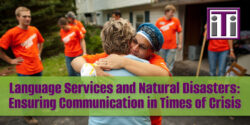
Your SEO strategy is a key factor intrinsic to global success. Search engines other than Google are gaining steam in international markets. As of May 2019, Google owns more than 90% of the worldwide market share according to GlobalStats [1]. However, if you’re targeting China, you won’t want to discount Baidu.
Many of the basic SEO principles that you employ in English will remain the same in the global market when developing your SEO translation strategy. However, you’ll need to determine the best way to translate your keywords and working with specialists is one way to do this.
Avoiding Localization and Translation Mistakes
Let’s say you’ve got a new wool rug to market to people in a new country. You’ve translated your content about the rug into Chinese, French, German, or whatever language people speak in that country. But then, in a scenario that’s all too common in global marketing campaigns, your efforts don’t bring sales or visitors to your website.
Poor localization is often the culprit of failed search engine marketing. Does your message connect with customers? Does it turn off native speakers of the language?
Here are five tips to help you avoid translation mistakes for voice search:
1. Understand the Cultural Customs of the Target Country.
Are you a beef company trying to sell your products in India? That can be a minefield. Or perhaps your content uses imagery of women with uncovered hair in a Middle Eastern country? Many people in the Middle East are offended by women without a veil.
2. Use Proper Punctuation and Grammar.
Your content may be translated properly but still not look right from a native’s standpoint. Be aware of grammatical and spelling quirks for other languages.
3. Use Standard Numeric Formats
Consider how numeric formats are presented on your website and be sure that those are localized. Countries have different standards for writing, and formats to convert include:
- Date
- Time
- Phone numbers
- Currency
- Measurements
4. Use the Right Version of the Language.
Some languages, like Spanish, have many dialects. With an international strategy, you may want to use “global” Spanish. But if you’re marketing just to Colombia, for instance, be sure to use Colombian Spanish.
5. Check for Local Slang and Double Meanings.
Innocent wording in English may translate into a phrase that confuses or offends people in another country. When Pepsi first launched in China, their slogan “Pepsi brings you back to life” went horribly wrong. In Chinese, the slogan essentially said that Pepsi brings your ancestors back from the grave. Oops!
Languages of Target Markets
According to GALA (Globalization & Localization Association), the world’s connectivity is rapidly increasing (and, as we’d expect, usage of voice search) [2]. From apps to tourism companies to corporate employee training, any user exposed to online verbal or visual language expects to be communicated with accurately.
You may hear more and more about the current business trends in the United States, but Asian markets are also growing rapidly. How soon will it be before many of your potential customers live in China? Perhaps many already are…
Because of all the information available at our fingertips, we expect ease and simplicity. Companies like Amazon, Airbnb, and Uber provide ease of use to customers, setting a new international norm. Naturally you want your business to be found easily, but this won’t happen if your online content is not well translated and optimized.
Translation Investments
Research by Common Sense Advisory shows that more than 70% of customers in all industries spend most of their time on websites in their own language. Wouldn’t you? The same proportion said they would prefer to buy a product that’s offered in their own language.
According to Entrepreneur Magazine, nearly half of Fortune 500 companies only have their website in one language [3]. Key factors that often go overlooked are:
- Ignoring language localization (e.g. Brazil vs Portugal, Colombia vs Chile vs Mexico)
- Measurement unit conversions (currency, miles vs kilometers, temperatures)
- Seeing China as one large market instead of several
- The Arabic language is a contender in the business world
Entrepreneur also states that localization and translation of websites accounts for less than 1% of company marketing spend. Many businesses are missing out on potential sales from international customers and the potential ROI is unmistakable large.
What’s more, Byte Level’s 2019 Web Globalization Report Card shows that for the world’s leading brands, 32 is the average number of languages a given brand supports [4]. If global expansion is on your radar, you must translation and localize your website in some capacity.
Concerned about cost? The Connecticut STEP Program is a grant that businesses can apply for in order to receive reimbursement for various translation costs including website localization. STEP is a federal grant that is available in most states, be sure to check with your local State Department to learn more.
Fuel Your Global Growth Today
With so many factors in voice search at play and various languages and regions to consider, your international strategy deserves time and attention. With the right language service provider at your side, there are no barriers between you and the new regions to grow into.
Embracing the fact that your content needs translation is the first step to the path of success in voice search globally. Next is addressing your online presence and its need for linguistic diversification, and ultimately carrying out proper translation.
You need a qualified strategic partner like Interpreters & Translators, Inc. that can confidently translate materials into various languages and local dialects. Contact us today to determine the best solution to represent yourself in the global market.
References
[1] Stat Counter
[2] GALA
[3] Entrepreneur
About Interpreters and Translators, Inc.
iTi’s dedicated and experienced team offers a wide range of multilingual solutions for domestic and global corporations in a variety of industries. Do you require translation services to enhance your global marketing and sales initiatives or interpreter services to communicate across languages? We specialize in custom language solutions and work with over 200 languages so regardless of the barrier you face, we will work together in synergy to bridge the gap to ensure success.
[iti-button url = “https://www.ititranslates.com/language-services-quote-request-form/” text = “Get Started Today”]







Comments are closed here.